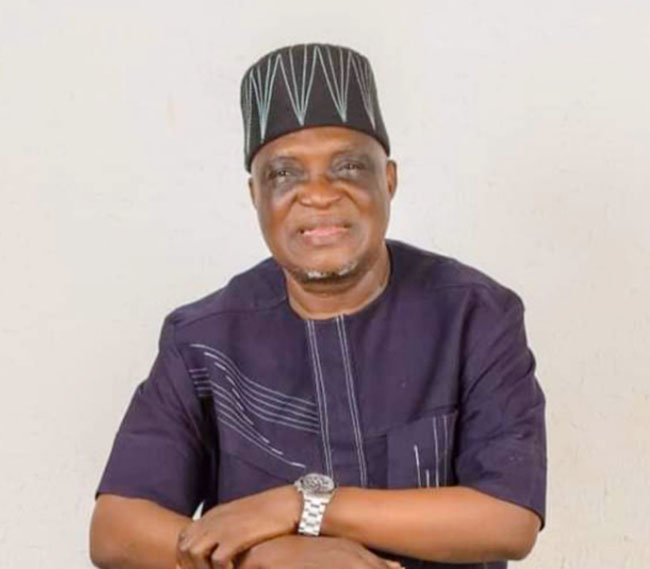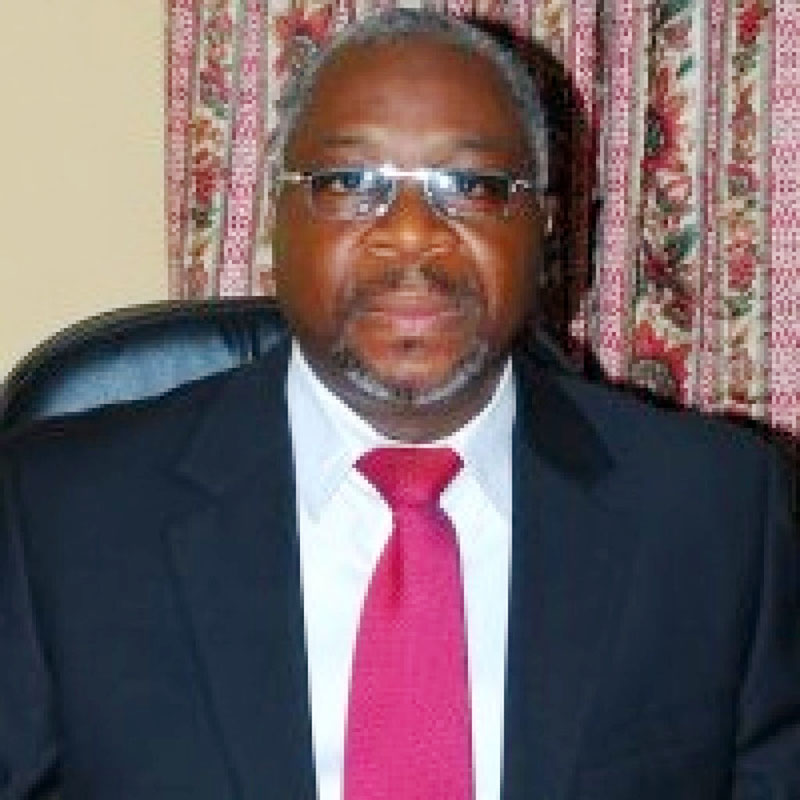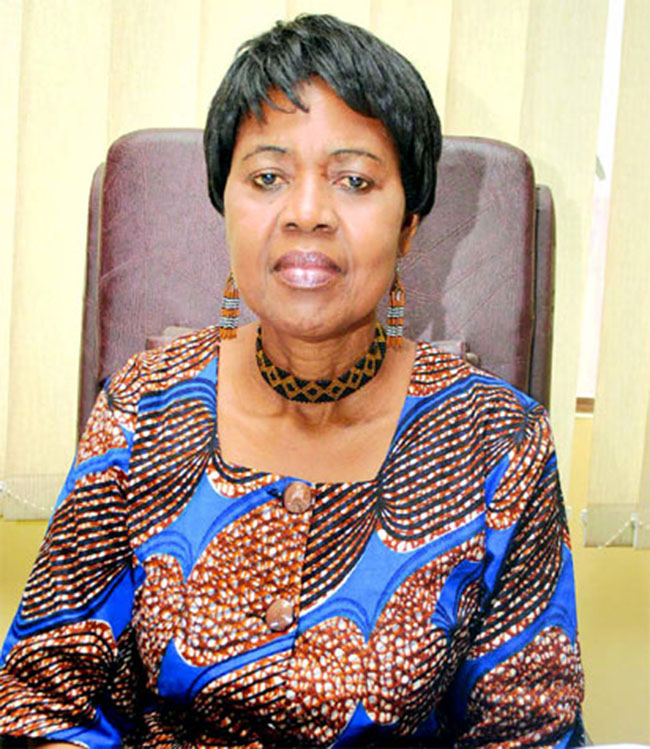Administration
Administration
Implementation of The Nigeria Prize for Literature
- The implementation of the Prize is the responsibility of the Advisory Board, supported by the Secretariat provided by NLNG.
- Only entries published in the year of the competition or in the three years before then are considered.
Profile of Advisory Board Members
Prof Olu Obafemi
 In a citation on him when he was conferred with the Nigeria National Merit Award, Prof Prof Olu Obafemi was described as “a multi-talented and many-sided personality. Playwright, poet, novelist, scholar, teacher, translator, and much more. Besides, he is the public intellectual par excellence, one who has exhibited throughout his turbulent career, a moral commitment to interrogate the social injustices in our nation and elsewhere, while striving to build bridges of understanding across the contentious gulfs of class, culture and race.”
In a citation on him when he was conferred with the Nigeria National Merit Award, Prof Prof Olu Obafemi was described as “a multi-talented and many-sided personality. Playwright, poet, novelist, scholar, teacher, translator, and much more. Besides, he is the public intellectual par excellence, one who has exhibited throughout his turbulent career, a moral commitment to interrogate the social injustices in our nation and elsewhere, while striving to build bridges of understanding across the contentious gulfs of class, culture and race.”
Born Tuesday, 4th April, 1950, in Akutukpa Bunu, Kabba, Kogi State, he studied English at Ahmadu Bello University, Zaria. He then earned a master’s degree at University of Sheffield, and a doctorate at University of Leeds, both in the UK. He returned to Nigeria in 1981 to pursue a career in academia, and has been Professor of English and Dramatic Literature at University of Ilorin, Kwara State, since 1990 until his recent retirement.
As a playwright, his published plays include Nights of a Mystical Beast (1986), The New Dawn (1986), Suicide Syndrome (1993), Naira Has No Gender (1993), The love Twirls of Adiitu-Olodumare (2016) and Iyunade (2016). His plays explore solutions to the country’s problems. As a poet, he has published a volume of poems, Songs of Hope, from which two poems were picked for the Joint Admission and Matriculation Board (JAMB) syllabus.
As a scholar, his works include Nigerian Writers on the Nigerian Civil War (1992), and Contemporary Nigerian Theatre: Cultural Heritage and Social Vision (1996). He also edited New Introduction to Literature (1994), and co-edited Character Is Beauty: Redefining Yoruba Culture and Identity (2001).
He has been President of the Association of Nigerian Authors (ANA), which is a reflection of his commitment not only to writing but also to the world of writers, as well as Chairman of the Governing Board of National Commission for Museums and Monuments (NCMM). As President of the Nigerian Academy of Letters (NAL), the apex body of arts and literature in Nigeria, he continued on his trajectory of services to the humanities.
Obafemi’s stint as Director of Research at the National Institute of Policy and Strategic Studies (NIPSS), Kuru-Jos, further highlighted his multidimensionality.
He remains dynamic and relevant as a man of ideas, and is currently Chairman of the Nigerian Reproduction Rights Society of Nigeria (REPRONIG).
Obafemi, A Member of Order of Niger (MON), was among the few egg heads whose creative thinking birthed the Nigeria Prize for Literature in 2004 and was one of the members of the Committee in Literature then.
He was appointed as a member of the Advisory Board of The Nigeria Prize for Literature and The Nigeria Prize for Literary Criticism in 2021.
Prof Ahmed Yerima
 Professor Ahmed Yerima is a Cultural Administrator, Lecturer at Redeemer’s University and Playwright. He attended The University of Ife (1981), University College, Cardiff (1982) and Royal Holloway College, University of London (1986) where he obtained a Doctorate degree in Theatre Arts. He has taught at the University of Ife, Ahmadu Bello University, Zaria, University of Lagos, Kwara State University, Malete and presently, Redeemer’s University, Ede.
Professor Ahmed Yerima is a Cultural Administrator, Lecturer at Redeemer’s University and Playwright. He attended The University of Ife (1981), University College, Cardiff (1982) and Royal Holloway College, University of London (1986) where he obtained a Doctorate degree in Theatre Arts. He has taught at the University of Ife, Ahmadu Bello University, Zaria, University of Lagos, Kwara State University, Malete and presently, Redeemer’s University, Ede.
Professor Yerima also worked at the Ministry of Tourism, Culture and National Orientation (1991-2009) where he rose to become the Director-General of the National Theatre and National Troupe and also the Director- General of the Abuja Carnival. Professor Yerima is also an award- winning playwright. He has written over seventy published plays including plays like The Trials of Ovonramwen, Attahiru, Yemoja, The Wives, The Sisters, Tuti, Odenigbo, Iyase, Abobaku, Pari, Hendu, Lanpapa, Lottery Ticket, Jakadiya, and Idemili. One of them, Hard Ground won the NLNG prize for Nigerian Literature, (2006). He was co-ordinating Secretary for the Vision 20-20 Sub-Committee on Culture and Tourism, (2007). Prof. Yerima is a fellow of the Society of Nigerian Theatre Artistes, (SONTA), a Fellow of NANTAP, and a Member of the Nigerian Academy of Letters. He was appointed a member of the Advisory Board of The Nigeria Prize for Literature and The Nigeria Prize for Literary Criticism in 2021.
Prof Akachi Adimora – Ezeigbo
 Akachi Adimora-Ezeigbo, a multiple award-winning prolific writer and international scholar, has taught in three universities in Nigeria – University of Lagos, Alex Ekwueme Federal University Ndufu-Alike, Ikwo (AE-FUNAI) and Ebonyi State University, Abakaliki, in Ebonyi State – as well as in South Africa and the United Kingdom. She was a three-time Head of English Department at University of Lagos (Unilag), and received the Best Researcher Award in the Arts and the Humanities from UNILAG in 2005. She has been awarded visiting Fellowships in the United Kingdom, South Africa and Germany and has given Keynote Lectures in universities in the USA. Apart from academic books and scholarly articles in local and international journals, she has published in all genres of literature: she is a poet, novelist, playwright, short story writer and children’s book author, writing under the pen name Akachi Adimora-Ezeigbo. She was a joint winner of The Nigeria Prize for Literature (NPL) in 2007 with her children’s novel My Cousin Sammy. Other literary prizes she won include WORDOC Short Story Prize (1994), ANA/Spectrum Prize for Prose (2001), Zulu Sofola Prize (2001), NDDC/Flora Nwapa Prize (2003), ANA/Atiku Abubakar Children’s Literature Prize (2008), ANA/Cadbury Poetry Prize (2009) and African Literature Association (ALA) Best Short Story Award (2020). She is a Fellow of the Nigerian Academy of Letters (FNAL), the Literary Society of Nigeria (FLSN), English Scholars Association of Nigeria (FESAN) and Association of Nigerian Authors (FANA). Akachi Ezeigbo was the Vice President of PEN International, Nigeria Centre (2002-2011) and Vice President of Women Writers Association of Nigeria – WRITA (1995-1999). She is a Director in the Board of Directors of University Press PLC, Ibadan, and a Member of the Governing Council of the National Institute for Nigerian Languages (NINLAN), Aba. In February 2021, Ezeigbo was appointed a Member of the Board of Trustees of IRUKA: Centre for the Study of the Future of Igbo. She was the Chair of the Panel of Judges for the 2011 The Nigeria Prize for Literature, in the Children Literature category. Akachi Ezeigbo is married to Professor Chris Ezeigbo and they have children and grandchildren.
Akachi Adimora-Ezeigbo, a multiple award-winning prolific writer and international scholar, has taught in three universities in Nigeria – University of Lagos, Alex Ekwueme Federal University Ndufu-Alike, Ikwo (AE-FUNAI) and Ebonyi State University, Abakaliki, in Ebonyi State – as well as in South Africa and the United Kingdom. She was a three-time Head of English Department at University of Lagos (Unilag), and received the Best Researcher Award in the Arts and the Humanities from UNILAG in 2005. She has been awarded visiting Fellowships in the United Kingdom, South Africa and Germany and has given Keynote Lectures in universities in the USA. Apart from academic books and scholarly articles in local and international journals, she has published in all genres of literature: she is a poet, novelist, playwright, short story writer and children’s book author, writing under the pen name Akachi Adimora-Ezeigbo. She was a joint winner of The Nigeria Prize for Literature (NPL) in 2007 with her children’s novel My Cousin Sammy. Other literary prizes she won include WORDOC Short Story Prize (1994), ANA/Spectrum Prize for Prose (2001), Zulu Sofola Prize (2001), NDDC/Flora Nwapa Prize (2003), ANA/Atiku Abubakar Children’s Literature Prize (2008), ANA/Cadbury Poetry Prize (2009) and African Literature Association (ALA) Best Short Story Award (2020). She is a Fellow of the Nigerian Academy of Letters (FNAL), the Literary Society of Nigeria (FLSN), English Scholars Association of Nigeria (FESAN) and Association of Nigerian Authors (FANA). Akachi Ezeigbo was the Vice President of PEN International, Nigeria Centre (2002-2011) and Vice President of Women Writers Association of Nigeria – WRITA (1995-1999). She is a Director in the Board of Directors of University Press PLC, Ibadan, and a Member of the Governing Council of the National Institute for Nigerian Languages (NINLAN), Aba. In February 2021, Ezeigbo was appointed a Member of the Board of Trustees of IRUKA: Centre for the Study of the Future of Igbo. She was the Chair of the Panel of Judges for the 2011 The Nigeria Prize for Literature, in the Children Literature category. Akachi Ezeigbo is married to Professor Chris Ezeigbo and they have children and grandchildren.
She was appointed to Chair the Advisory Board of The Nigeria Prize for Literature and The Nigeria Prize for Literary Criticism in 2021.
Responsibilities of The Advisory Board
The board shall meet at least four times per annum on the Prize. These meetings can be physical or virtual. The roles of the board include to:
- Appoint judges, including the international consultant, for annual adjudication process for The Nigeria Prize for Literature.
- Provide general steer on the requirements for submission and adjudication process for the judges.
- Provide general guidance to judges on winning entry if there is a stalemate.
- Participate in the award ceremony for winners of the Prizes.
- Review and approve call for entries.
- Handover received entries to judges and approve judges’ adjudication guidelines.
- Approve assessment criteria for each genre.
- Announce, with the support of the judges and NLNG, the winner of the Prize.
Panel of Judges
This is a committee of judges set up by the Advisory Board to review and adjudicate entries submitted for The Nigeria Prize for Literature. The members of the panel shall be selected by the Advisory Board to reflect the geo-ethnic balance of Nigeria. Their tenure is annual. The Nigeria Prize for Literature shall have three Nigerian judges and one international judge.
Appointment
- The judge(s) must be experts, adjudged to be sufficiently versed in the genre under consideration for the particular year.
- A judge shall be nominated by the Advisory Board but shall be formally appointed with a letter signed by NLNG Management. Such appointment can only become effective when the appointee acknowledges such letter and accepts the appointment in writing.
- The judges must be persons of impeccable character.
- The person(s) will be required to have a personal laptop which can be used for online meetings via Skype, Microsoft Teams, etc.
- The person(s) must have basic Internet and computer skills to ensure they can navigate online platforms easily for the purpose of reports and online meetings.
- The person(s) must be able to dedicate considerable time to the Prize in the year, be willing to travel for the purpose of the Prize and be in considerably good health to undertake such travels.
Roles and Responsibilities
Duties of the judges shall include:
- Develop and agree on the assessment criteria, to be approved by the Advisory Board, for adjudication of the Prize.
Read the entries and evaluate objectively to provide the long- and shortlists. - Submit reports of evaluation on agreed deadlines to the secretariat which submits same to the Advisory Board.
Ensure that adjudication is transparent, free and fair. - Align judgement with report of international consultant and Advisory Board and agree on winner(s)/no winner where necessary.
- Prepare reports for the announcement of winners using the works on the shortlist of three.
Prepare a detailed report of adjudication and submit to the secretariat at the end of the cycle.
